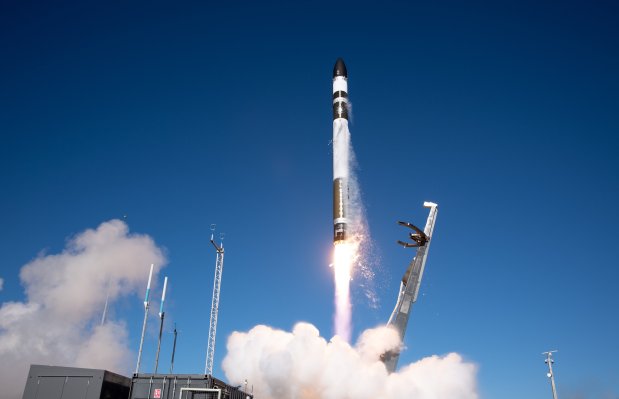Rocket Lab is set to complete a crucial test for its rocket reusability program during its next mission, which is currently set to take place sometime in mid-November, with a launch widow that opens on November 16. This is a bit of a surprise, because the launch company said that it would be doing this on its 17th flight, and the next launch is actually its 16th, but the company had a succinct answer for why it moved up the timetable.
This isn’t the first test Rocket Lab has performed in pursuit of reusability — after announcing in August 2019 its intent to recover and refly the Electron booster, something Rocket Lab founder and CEO Peter Beck originally said wasn’t in the cards for the company, Rocket Lab has tested reentry guidance and control systems, as well as the parachute to be used to slow the booster’s descent once it’s back in Earth’s atmosphere.
In a video released today, Beck explained the reasoning behind even attempting to recover the boosters (essentially to increase the company’s rate of production by eliminating the need to build a new booster for every flight) and also the reasons why it wasn’t in the original plan (the Electron is too small to allow for an engine-powered boost back like the ones Falcon 9 and Blue Origin’s New Shepard uses).
But Beck and team realized they could use an unconventional approach that involves flipping the rocket around and angling it such that it survives reentry, paired with a drogue parachute deployment and primary parachute combo that slows it enough that a helicopter can catch it midair as it drifts. This recovery attempt won’t include that midflight snag, but will instead hopefully see the booster land itself gently enough on the ocean’s surface, slowed by the chute, allowing a recovery team to pick it up.
Beck says that the helicopter catch part is actually not his biggest concern, since the company has previously demonstrated that part of its approach works in practice. Instead, it’s ensuring that they’re just able to actually get the stage after it deploys its orbital cargo to begin with.
If Rocket Lab can recover this first stage, that will put it well-within striking distance of putting an operational recovery system in place, hopefully leading to less time between launches and potentially lower operational costs down the line.
No matter how the launch works out, we’ll get the chance to go over the attempt and next steps with Beck at our inaugural TC Sessions: Space event in December, where he’s joining us on our virtual stage for a fireside chat.


Recent Comments